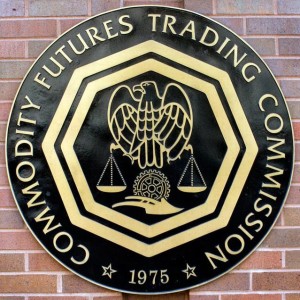 A second federal judge has ruled that virtual currencies are commodities.
A second federal judge has ruled that virtual currencies are commodities.
“On September 26, 2018, Senior Judge Rya W. Zobel of the U.S. District Court for the District of Massachusetts, entered an order holding that the Commodity Futures Trading Commission (CFTC) has the power to prosecute fraud involving virtual currency and denying the defendants’ motion to dismiss the CFTC’s amended complaint.” The Commodities Futures Trading Commission announced in a statement.
James McDonald, CFTC Director of Enforcement, commenting on the ruling, stated: “This is an important ruling that confirms the authority of the CFTC to investigate and combat fraud in the virtual currency markets. This ruling, like the one in McDonnell from Judge Weinstein in the Eastern District of New York, recognizes the broad definition of commodity under the CEA, and also that the CFTC has the power to prosecute fraud with respect to commodities including virtual currencies. We will continue to police these markets in close coordination with our sister agencies.”
This ruling concurs with another ruling but Federal Judge Jack Weinstein, who stated in a decision in March, “The primary issue raised at the outset of this litigation is whether CFTC has standing to sue defendants on the theory that they have violated the CEA (Commodity Exchange Act). Title 7 U.S.C. § 1. Presented are two questions that determine the plaintiff’s standing: (1) whether virtual currency may be regulated by the CFTC as a commodity; and (2) whether the amendments to the CEA under the Dodd-Frank Act permit the CFTC to exercise its jurisdiction over fraud that does not directly involve the sale of futures or derivative contracts.
“Both questions are answered in the affirmative. A ‘commodity’ encompasses virtual currency both in economic function and in the language of the statute. Title 7 U.S.C. § 1(a)(9)
“(The CEA defines ‘commodity’ as agricultural products and ‘all other goods and articles . . . and all services, rights, and interests . . . in which contracts for future delivery are presently or in the future dealt in.’).”
At the time of Judge Weinstein’s ruling, the CFTC had deemed virtual currencies commodities and began regulating them by fiat.
That position was not challenged until that case made it to Judge Weinstein’s court.
Judge Weinstein issued a decision in the case Commodities Futures Trading Commission (CFTC) Vs. PATRICK K. MCDONNELL, and CABBAGETECH, CORP. d/b/a COIN DROP MARKETS.
In this case, it was the COMMODITY FUTURES TRADING COMMISSION v. MY BIG COIN PAY, INC. et al.

A different case, but the ruling is the same with the court in this case stating, “The text of the statute supports plaintiff’s argument. The Act defines ‘commodity’ generally and categorically, ‘not by type, grade, quality, brand, producer, manufacturer, or form.’ Docket # 70 at 11. For example, the Act classifies ‘livestock’ as a commodity without enumerating which particular species are the subject of futures trading. Thus, as plaintiff urges, Congress’ approach to defining “commodity” signals an intent that courts focus on categories—not specific items—when determining whether the “dealt in” requirement is met.”
With two courts having ruled that virtual currencies are commodities, this helps to clarify that CFTC will be the main regulator of virtual currencies, as commodities are under its purview.
But the issue is not final. As Judge Weinstein noted, Congress can still weigh in and the only court in the US which has the final word is the US Supreme Court.
That court has yet to weigh in and with an issue as popular and controversial as virtual currency it is likely that sooner or later the Supreme Court will look at this as well, but for now, two courts have now deemed virtual currencies commodities and with it they give CFTC power to regulate.









